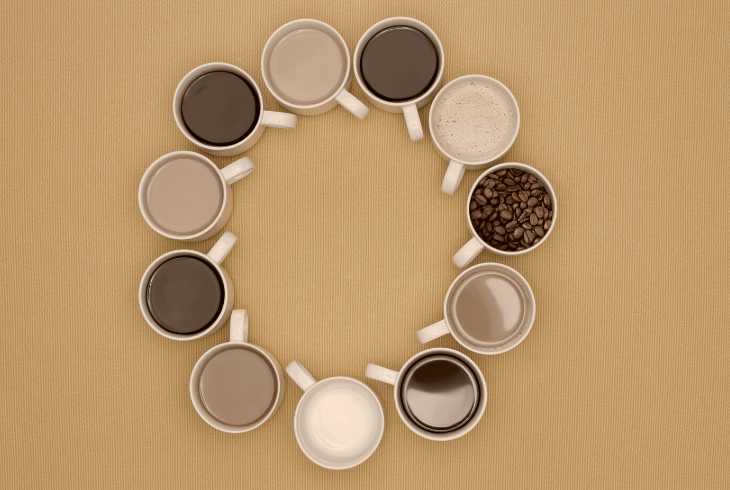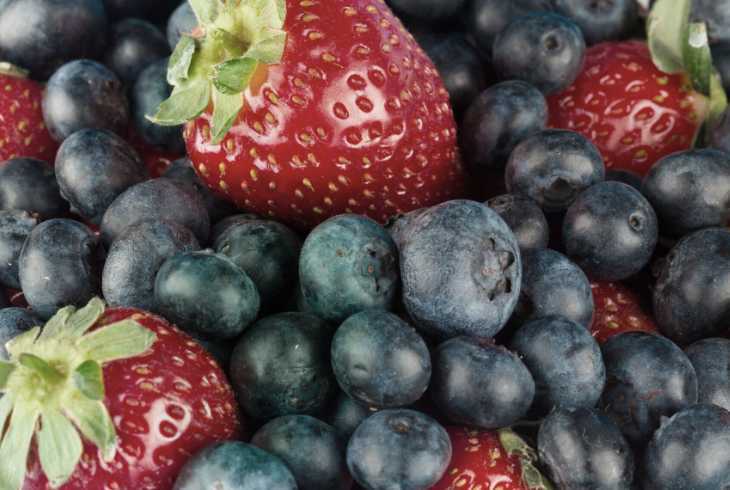Coffee is a terrific and magical liquid that sometimes makes you wonder what you'd do if you didn't have it. Whether you're drinking it when you have a lot of work to do or just kick-starting your morning, its always there when you need it.
Another good thing about coffee, are the benefits you get from consuming it (aside from staying awake!). It plays host to many biologically active compounds and byproducts other than caffeine – and the biggest heroes among them are the antioxidants in coffee.
What are Antioxidants?

Coffee is chock-full of antioxidants. True to their name, antioxidants prevent oxidation, a chemical process that produces free radicals within the body. Free radicals disrupt cells and can cause DNA damage. Moreover, the antioxidants found in coffee and other foods and drinks can stop these reactions from occurring.
Scientists contest antioxidants’ exact contribution to human health, but most agree antioxidants are beneficial and may be effective at preventing the development of certain diseases.
Antioxidants in Coffee Health Effects
While not every effect on health is solely attributable to antioxidants, coffee seems to have many positive effects on our health. The following are some of the ailments and conditions coffee has been shown to affect:
Heart Disease
There is considerable evidence that the antioxidants in coffee reduce the risk of heart disease. Many studies support the theory that coffee reduces the risk of heart disease, especially in women.
Reduced Risk of Stroke
Coffee is also linked to a reduced risk of stroke. Although us coffee drinkers probably need to consume at least 2 cups of coffee per day to get the full benefit. No problem, right?
Cancer
Cancer, unfortunately, is an all too common occurrence in humans. Although cancer is incredibly complex and is a constellation of many diverse types of disease, coffee seems to have positive effects on a fair number of them.
Lets pick just one example, heavy coffee drinkers (4 to 5 cups a day), had a significantly lower risk of developing liver cancer. Amazing, right?
Type 2 Diabetes
Type 2 diabetes is another disease that is all too common worldwide. Studies show that coffee consumption (especially heavy consumption) seem to have positive effects on insulin sensitivity. Likewise, it's beneficial for other symptoms of Type 2 Diabetes.
Improve Energy Levels
Okay, sure, coffee is addictive. However, the main reason people consume coffee isn't the incredible taste.
Coffee contains significant amounts of caffeine, a stimulant that is absorbed as you sip your morning joe. Your caffeine-laden blood then delivers it throughout your body, then most importantly, to your brain.
Once in the brain, caffeine blocks the neurotransmitter adenosine. Adenosine is a sleep-promoting chemical produced by the brain. By interrupting it from binding to your brain's receptors, caffeine quite literally delivers a jolt of energy.
Antioxidants and Coffee Styles

As you know, there are many ways to produce coffee. Hot, cold, even decaffeinated! Your preparation, storage, and how you drink your coffee is going to change how many antioxidants you consume.
Let's talk about how some of the different types of coffee affect its antioxidant load:
Cold-Brew Vs. Regular Coffee
Your regular, pour-over or drip hot-coffee has more antioxidants than cold brew. Cold-brew contains fewer titratable acids than hot brewed coffee. which probably contributes to its relative lack of antioxidants. Although, it does still have a significant amount.
Decaf Coffee
Decaf coffee is excellent for an evening cup of coffee with a significantly reduced (read: non-zero) amount of caffeine.
Regular hot coffee has a higher antioxidant concentration than its decaffeinated cousin. But again, there are still significant numbers of antioxidants in decaf coffee. The reduction in antioxidants most likely happens during the decaffeination process.
Other Major Dietary Sources of Antioxidants

Coffee is a popular drink worldwide, and by extension, a very common source of antioxidants. Further, tea and coffee contribute the majority of antioxidants for most people – and on average, drinks contribute around 79% of all antioxidants.
One of the scientists' points of contention is precisely which antioxidants are health-promoting. Antioxidants are in many types of foods. While coffee is an excellent source, it's probably best to balance your diet with a wide variety of fruits, vegetables, and other foods.
High Antioxidant Foods
Dark chocolate is a food many people already love to consume. It's full of vitamins, minerals. And most relevant to today's topic, a fair amount of antioxidants.
The cocoa in dark chocolate helps to reduce the risk of developing heart disease and directly moderates high blood pressure. Whether it's the antioxidants or something else in chocolate which contributes its cardio-protective properties, it's still a good pairing for your cup of joe.
Pecans are loaded with healthy minerals and fats, and a ton of antioxidants. Moreover, they improve lipid profile and seem to have positive effects on cholesterol levels.
Unlike coffee (and like chocolate), pecans are high in calories. Try to enjoy your pecans in moderation.
Blueberries are unusually high in antioxidants and may help protect the brain as it ages. They help neutralize any free radicals in your body and reduce any inflammation.
Strawberries are not only loaded with vitamin C (a powerful antioxidant on its own) but are good sources of other antioxidants. The antioxidants found in strawberries seem to help prevent or fight heart disease, cancer, and metabolic syndrome.
Many berries have a good mix of antioxidants, but easy-to-find blueberries and strawberries are all-stars on the antioxidant front.
What are the Downsides of Coffee?

Nothing is perfect – not even coffee with all of its antioxidants. Coffee can cause significant side effects, and caffeine is – in high enough doses – even fatal!
Here are some of the downsides of coffee you should keep in mind before seeing how many cups you can drink in a day:
Anxiety
Consuming coffee can cause significant anxiety, sometimes compounded by heart palpitations. If you are subject to panic attacks, they can even be triggered by consuming too much caffeine in coffee. If you're sensitive to caffeine on top of it, that can compound over-stimulation.
Always keep an eye on your anxiety, especially when drinking significant amounts of caffeine.
Sleeping Problems
The flip side of the increased energy from drinking coffee is the potential for sleeping problems. Drinking coffee too late in the afternoon or evening can make falling asleep in the evening difficult.
For most people, it's best to stop drinking coffee six or more hours before you plan to sleep.
High Blood Pressure
High blood pressure is a significant side effect of caffeine consumption. Even with coffee's cardio-protective properties, the acute effects of raised blood pressure might lead to heart and blood flow problems.
Regular coffee consumption can also result in electrolyte imbalance. Coffee is a diuretic that might result in dehydration if you aren't careful.
Addiction Issues
Any heavy coffee drinker knows that a missed day can mean a splitting headache and an entirely unproductive day. Coffee – or rather, caffeine – is addicting, and dialing back too quickly can even lead to withdrawal symptoms.
The more coffee you drink, the more severe withdrawal symptoms you may experience.
Here are a few withdrawal symptoms:
If you do plan to stop drinking coffee, we've put together a detailed guide on how to reduce your caffeine withdrawal symptoms safely.
Some Final Caffeinated Thoughts
You probably don't need any more reasons to drink your favorite brew. Coffee already helps you stay alert and focused. But that's just the beginning, biologically active antioxidants in coffee also go a long way to protecting you from various ailments and diseases.
Sure, too much coffee can cause jitters. But, with everything we know about the benefits of caffeine, how could you turn down the morning cup? You know I won't!
About the Author: Gerard Paul writes about food and drink at ManyEats. You can usually find him in front of a keyboard with a cup of coffee close by. (Yes, even in the evening.)




